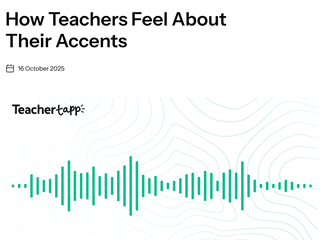There’s been a lot of discussion about group work recently in the blogosphere. David Didau’s ‘Why (the hell) should students work in groups?’ with its deliberately provocative title, stirred up the waters. For quite some time, a number of influential teachers, opinion-makers and others have also been extolling the virtues of DI (direct instruction), demanding more of a focus on knowledge, bewailing the vast holes in young people’s cultural awareness and generally retreating from what they pose as a ‘progressive’ set of practices that have supposedly dominated and damaged children’s education. Suddenly, it seems that people are not only willing, but proud to challenge old certainties.
In some classrooms, as part of this new drive for a knowledge and instruction-based approach to learning, children are not encouraged to talk in exploratory ways, are expected to spend a lot more time listening to teachers and are handed down academic forms of language from a teacher who supposedly has a monopoly on knowledge.
Here at EMC, we have responded to some of these debates in our own blogs – one on knowledge, another on reading, a third on group work. We have tried to reassert some of the principles that have underpinned our work for over 30 years – work in English that has, even if we say so ourselves, been highly valued and recognized as making a significant difference to young people’s education.
Much of what we do in terms of approaches to classroom resources and pedagogy is so long-standing, in such a continuous tradition, passed down from expert teacher (or teacher trainer) to expert teacher, that we don’t necessarily spend enough time remembering the thinking that underpins it. Of course pragmatic questions about classroom activity (beyond the increasingly hollow ‘does it work’ refrain) are vitally important – how to do it well, how to make sure it’s fully participatory for all pupils, how to structure it tightly, how to set up ground rules and so on. (Useful in trying to resolve some of these questions are all those very valuable strategies that we and many others promote, whether it be jigsawing, statement sorting or Socratic circles, or key pedagogical choices such as making individuals accountable for group activity, how to determine the optimum size of groups, creating lists of rules, or making decisions about ability or friendship grouping.) But beyond and behind the pragmatic questions it seems to us that there is a much deeper, more fundamental set of issues about the ways in which people learn. This set of issues should be at the heart of thinking about group work because it provides both the rationale for it and invaluable fuel for pragmatic thinking about it. It also provides a guiding light to help teachers cut a path through the undergrowth of inevitably messy classroom interaction, to carve out the best route through for their students. In our recent experience of discussions about group work, we find some of this deeper underpinning to be missing.
What is this deeper set of issues? I can already hear the criticisms coming – one person’s deeper underpinning is another’s dogma or ideological slant. So I want it to be clear that this isn’t a question of dogma. It’s about being more persuaded by one kind of theoretical or ‘research’ framework than by others, putting those ideas to the test in classrooms over many years, judging them also in terms of our own learning as adults. They seem to make good sense in that they connect with what I’ve observed in young people over many years, as well as with my own experiences of learning and what works for me. In other words, they make sense not just as theories but in the practical testing grounds of classrooms and other learning environments. As teachers, and as teachers of teachers, we have seen these ideas at work and been persuaded of their value and significance.
What are these theories and ideas? At EMC, on one day this summer, we held a training day for ourselves, to remind ourselves of these in relation to group work. We worked in a small group…productively. It was exciting, energizing and inspiring. We all felt that we came out of it thinking differently, knowing more, having extended our knowledge.
Our central question was this: if all our materials and all our training with teachers involves such strong elements of group work, why is this? Why are we so wedded to it? Why are we so certain of its value? The session was led by me. To prepare for it I went back to Vygotsky (re-discovering his work on zones of proximal development and the social nature of thinking and language learning). I went back to the extraordinarily significant work of Douglas Barnes. I reminded myself of Alan Howe’s work on oracy and the work we’ve been doing over the past few years on literacy across the curriculum, including collaborating with Peter Campbell (Institute of Physics) on literacy in science. I re-read bits of Karen Littleton and Neil Mercer’s Interthinking. I looked back at EMC’s publication ‘Small Group Learning in the Classroom’ (1989). I went back through EMC’s publications – everything from ‘The Island’, ‘Powerful Texts’ and ‘School’ to our recent material, ‘Worldfriendly Books’, ‘Spotlight on Literacy’ and ‘Jekyll and Hyde’. I also looked back at John Hattie’s ‘Visible Learning’, blogs about group work, such as the one by David Didau quoted above and James Mannion’s lucid reply, as well as new books on the subject by Val Coultas and others.
A few powerful ideas emerged from our discussions that we want to take further. We are thinking of setting up a project on ‘Productive Group Work’, in the course of next year. It will be funded by us, out of other aspects of our work. We don’t want to engage in a RCT experiment but rather in a developmental project with teachers that explores and develops our thinking and theirs, one that extends our collective thinking, practice, knowledge, confidence and understanding by trying out, observing, reflecting, analyzing and adapting – in other words, using the approach that turns teachers into experts, capable of making subtle and telling judgements on behalf of their students. We want to fund it ourselves because we believe that it’s a vitally important area for English teachers to continue to develop in their classrooms and get right.
And now, here are just a few those underlying ideas that you may have been waiting for patiently while reading this article, the ones that we’ll be exploring more fully and exemplifying in our project.
1. That exploratory talk between people is a way of extending their knowledge and, most importantly, what they do with that knowledge. Talk changes thinking. It allows people to take in knowledge and then ‘recode’ that knowledge (Douglas Barnes), so that they think differently. If we believe this, then it has to be an important part of what happens in classrooms.
2. The idea that group work is good or bad is a gross-oversimplication of the complexities of what happens in good classrooms. Group work of different kinds serves different purposes. One size doesn’t fit all. Tight v loose structure, friendship v ability groups and all the other pragmatic decisions, need to be closely allied to purposes and contexts. A list of strategies is only a starting-point for a really skilled teacher – a repertoire or aide-memoire. There’s a huge amount more to be done in exploring a range of purposes, kinds of classes, the age of pupils and helping teachers to become confident in choosing appropriate and relevant strategies for the particular context – and being flexible enough to adapt them according to what’s happening in the classroom.
3. Group work is a method of delivering curriculum aims (e.g. understanding a text, getting to know a poem, pooling ideas as a prelude to writing, debating an idea for a presentation). But it is also a curriculum aim for English teaching in its own right. It’s more than just a ‘take it or leave it’ classroom approach. The ability to discuss, respond, listen, collaborate, share ideas, defend a position, play devil’s advocate, test out your thinking, hear another view, is a vital 21st century language skill. For children who don’t have much of this kind of discussion in their own home, it is all the more important that they are given access to this kind of experience in school. It feeds into everything in the English classroom. What do we expect them to do with texts? Confidently hold different interpretations in their heads and play with them, test them out, have the kind of dialogue with themselves that they might have with others, holding their ideas up for scrutiny and adapting them according to fresh information and fresh thinking. Where can they learn these skills? In group discussion.
4. In the past, a lot of the work on group talk was based on classroom recording, either audio or video. Seminal work by Douglas Barnes and others includes fascinating transcripts of group talk in action, with commentaries analyzing what is happening, what is being learned and how one might interpret the potentially confusing signals about what is at stake. EMC for many, many years – less so recently – made small examples of classroom interaction a key part of its courses and teachers were able to discuss what was being learned and why, sharing a piece of visible evidence and considering what might be ways of developing and improving the work they saw. We believe that this kind of work, with teachers, can help refine and extend teachers’ confidence and expertise, helping them to make the kind of subtle judgements about when, why, how much, who, what for, that make all the difference to productiveness or not. Group work requires subtlety, not crude good v bad, yes v no decisions. We hope that a project might allow us to do more of this kind of recording, to be shared with teachers and discussed in CPD.
We think that the time has come for us to stand up strongly for our principles and practices by publically announcing where we stand and why. We believe that the work of many highly regarded teachers and academics, who have dedicated their working lives to close work on language and learning and the social nature of talk and thinking, should not just be cast aside in favour of a range of more or less convincing, new pedagogical theories that seem to us to be based on less rigorous or sustained work. We don’t think it is helpful to sway backwards and forwards like a reed in the wind, nor to latch onto the latest craze. We never have! Anyone promising that a single technique or a single theory or a single person offers all the answers, or even that x is good and y is bad, is undoubtedly wrong. We never rushed down the learning styles road or the DI highway, nor did we get stuck in the SOLO cul de sac. We refused to screech to a halt on elements of skills and process, in a headlong dash towards knowledge. We were sceptical about levels and anything that pretended that everything that is important in learning in English could be neatly labeled and quantified. We have always advocated a subtly nuanced approach that says yes and no, and ‘it depends’ to almost everything and have sought to have the most serious and important conversations not about ‘this rather than that’ but about how both ‘this’ and ‘that’ can be expertly and sensitively used as powerful tools by powerful teachers. We’re for knowledge and skills, teachers holding the reins and students having a voice, disciplined classrooms but not ones where pupils aren’t heard, or are only heard answering in stilted, academic language to the exclusion of their own vital, thinking, exploratory voices. We’re for group work, yes. Of course we are! To be otherwise would be simply damaging to pupil learning.
Our project on group work will start with a twilight session in the autumn, where we’ll be inviting some teachers to come and talk with us and share our thinking and our reading. We hope it will be a productive piece of group work that will lead us further. We’ve already mapped out some possible directions but we’re confident that other, unexpected ones will inevitably arise from the kind of talk and thinking that happens when groups come together in effective and inspiring ways.




